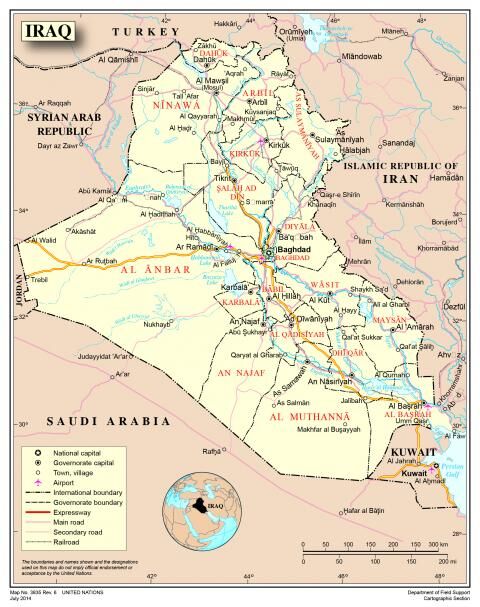Population Census in Iraq: International Objections and Local Concerns
The Iraqi government announced a full curfew across the country starting at midnight on November 19 until the end of November 20, 2024, to conduct the national population census, the first of its kind since 1978. This step follows extensive preparations, including field visits by specialized teams. The authorities hope the census will provide accurate data to aid in future planning.

Objections to Methodology and Demographic Concerns
The Geneva International Centre for Justice (GICJ) has received numerous statements and appeals expressing widespread concern over what is described as part of a systematic policy, implemented since 2003, to marginalize the Sunni population and enforce demographic changes inconsistent with reality. Reports indicate that over five million people displaced from predominantly Sunni areas are largely excluded from participating in the census due to the absence of comprehensive measures to account for them.
On the other hand, fears persist about the potential inclusion of large numbers of non-Iraqi residents, particularly those who settled in Iraq after the U.S. invasion, which could lead to demographic shifts affecting the country's population balance along sectarian lines.
Exclusion Under the Quota System
Since 2003, Iraq's political system has been based on sectarian quotas, with top state positions divided among Kurds (presidency), Shia (prime minister), and Sunnis (parliament speaker). This distribution extends to administrative and financial posts down to the lowest levels.
According to the United Nations Population Division, a population census is a comprehensive process of collecting, classifying, and publishing demographic, economic, and social data. In its September 18, 2024 report (CERD/C/IRQ/CO/26-27), the UN Committee on the Elimination of Racial Discrimination warned that excluding the "sect" category from the census form could result in inaccurate reflections of Iraq’s population reality.
The committee urged the Iraqi government to include comprehensive and detailed statistics in the 2024 census, covering ethnic and religious composition, respecting the principle of self-identification, and providing data on minorities, internally displaced persons, and stateless individuals. The aim is to create a database that can be used to monitor equal enjoyment of rights.
Displacement and Demographic Changes
Over the past years, GICJ and other international organizations have documented military campaigns targeting predominantly Sunni areas under the pretext of combating terrorism. These campaigns caused massive displacement and migration of residents. Simultaneously, new groups settled in areas abandoned by displaced populations, creating a demographic reality that does not reflect the original population distribution.
GICJ and other organizations argue that the authorities’ insistence on excluding the "sect" category from the census, despite the political system being sectarian, and their exclusion of displaced persons abroad, raises significant questions about the census's objectives. This process takes place amid ongoing instability in the country and complaints from Iraqi officials about technical issues in the census's electronic system.
Consequently, fears of a plan to cement population ratios that do not reflect reality—ratios imposed by international interventions in Iraq—are gaining greater international understanding now than ever before.
قراءة باللغة العربية







